European Parliament Got Huge Powers with the Supervisory Mechanism
Adelina Marini, September 15, 2013
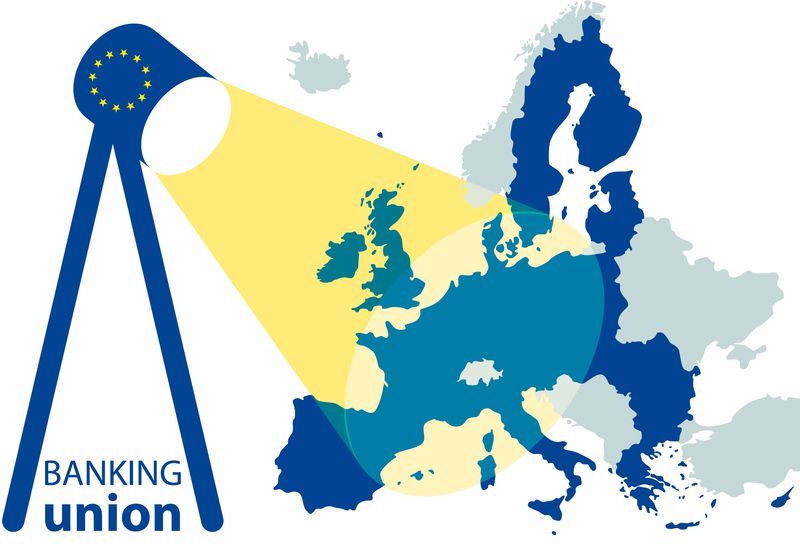 It took precisely a year to make the biggest integrational step since the introduction of the euro - the single supervisory mechanism (SSM) for banks to be approved after a vote in the European Parliament during its September plenary session, thanks to the historical inter-institutional agreement. With that document, the MEPs get huge powers thus becoming a key factor in European politics. The supervisory mechanism is the first big step toward the creation of a banking union, the idea for which was approved by the leaders of the member states in June 2012 with the main aim to put an end to the vicious circle saving banks with taxpayers' money, crisis and again saving banks with public funds.
It took precisely a year to make the biggest integrational step since the introduction of the euro - the single supervisory mechanism (SSM) for banks to be approved after a vote in the European Parliament during its September plenary session, thanks to the historical inter-institutional agreement. With that document, the MEPs get huge powers thus becoming a key factor in European politics. The supervisory mechanism is the first big step toward the creation of a banking union, the idea for which was approved by the leaders of the member states in June 2012 with the main aim to put an end to the vicious circle saving banks with taxpayers' money, crisis and again saving banks with public funds.
What does the mechanism do?
The SSM will cover all eurozone banks as well as those outside depending on whether non-euro countries will join it or whether a euro area bank is connected with banks outside the zone of the single currency. The supervisory role will be performed by the European Central Bank for which special rules are established to make clear distinction between its supervisory functions and its monetary policy. According to the bank's calculations, the financial institutions in the euro area are around six thousand, but not all of them will be directly supervised by Frankfurt. ECB will have a direct responsibility for the banks that own assets of more than 30 billion euros or who have at least a 20% share in the GDP of their home country. Under the direct supervision of the bank will also be all those institutions that requested or received public financial assistance through the eurozone bailout mechanisms like the European Facility for Financial Stability (EFSF) and the European Stability Mechanism (ESM).
SSM is a huge breakthrough after the several failed attempts of the European leaders and institutions via small steps and without giving up more sovereignty to solve problems revealing deep interconnectedness. As Joerg Asmussen, member of the ECB executive council (Germany), acknowledged at the Eurogroup informal meeting in Vilnius on September 13th, the two previous stress tests that had to verify the real condition of the European banks, failed. "Now we probably have a third, last, chance to restore our banking system", he said.
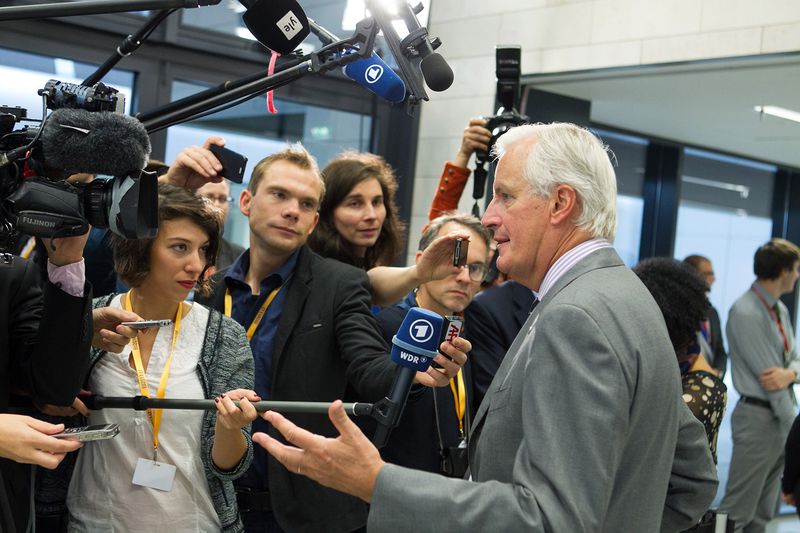 The negotiations on the SSM, although short for the European dimensions, were accompanied by intensive controversy - first, between the member states, a large part of which did not want to give away practically more sovereignty to an external (but as a matter of fact entirely domestic - ECB) - body and tried to agree concessions that would allow them to protect their national interests. And second - between the institutions (the Council and European Parliament and later between the Europarliament and ECB). It can be said that the speed and efficiency of these negotiations is the result of the bad economic situation of the euro area, the growing unemployment and the lack of even short-term positive outlook. Another vicious circle was created - there is potential for growth, but there is no accessible funding. Credit is tight in many of the members of the monetary union and expensive. As a result, enterprises do not open additional activities, they do not make new investments and therefore they do not hire new workers. Michel Barnier, the EU internal market commissioner, explained this vicious circle with simple numbers - 65% of the economy in Europe is financed by banks, unlike the US where this share is much lower.
The negotiations on the SSM, although short for the European dimensions, were accompanied by intensive controversy - first, between the member states, a large part of which did not want to give away practically more sovereignty to an external (but as a matter of fact entirely domestic - ECB) - body and tried to agree concessions that would allow them to protect their national interests. And second - between the institutions (the Council and European Parliament and later between the Europarliament and ECB). It can be said that the speed and efficiency of these negotiations is the result of the bad economic situation of the euro area, the growing unemployment and the lack of even short-term positive outlook. Another vicious circle was created - there is potential for growth, but there is no accessible funding. Credit is tight in many of the members of the monetary union and expensive. As a result, enterprises do not open additional activities, they do not make new investments and therefore they do not hire new workers. Michel Barnier, the EU internal market commissioner, explained this vicious circle with simple numbers - 65% of the economy in Europe is financed by banks, unlike the US where this share is much lower.
The powers of the European supervisor will include authorising and withdrawing authorisation of all credit institutions in the euro area. ECB will be also responsible for acquisitions and disposal of holdings of the banks. It will hold stress tests which, however, will not replace the tests being performed by the European Banking Authority, created in 2010 in a package with some other bodies - the first hesitant attempt for europeanisation of the solutions for problems that have long been common European issues. National supervisors will continue to perform their functions, but they will be reduced only to the less significant banks. ECB, though, will have the right to demand the entire necessary information in investigating a case, to hold investigations of credit institutions as well as of people involved in certain activities, and to hold inspections on the spot. ECB will be able to impose financial sanctions.
ECB's supervisory part will consist of a chair and a vice chair, elected by the ECB governing council and consisting of four representatives of the central banks and one representative for every national bank of a competent institution. Separately, a panel will be established of mediators to resolve disagreements that could arise between national competent authorities and the bank's governing council.
Strong, stronger, European Parliament
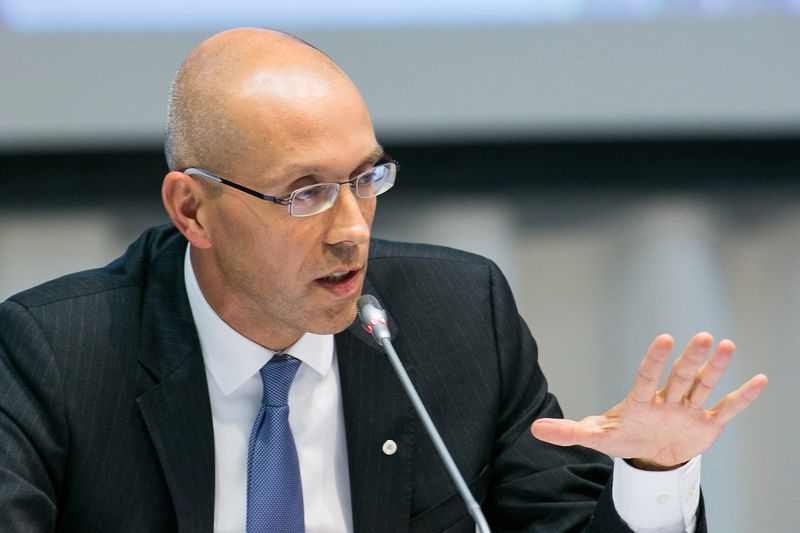 It is important to note that there will be very strict rules for the implementation of the ECB supervisory functions by its staff that include whistle-blowing as well. And here comes the European Parliament's role, according to the achieved agreement after negotiations throughout the summer. According to that agreement, ECB will create specific criteria for the selection of the supervisory chair, which include his/her professional skills, knowledge of financial institutions and markets, experience in financial supervision. These criteria ECB is obliged to make public. A major requirement of the EP is the bank to stick to the highest professional standards. To be sure of that, however, a relevant committee will approve the nominations for the chair and the vice chair.
It is important to note that there will be very strict rules for the implementation of the ECB supervisory functions by its staff that include whistle-blowing as well. And here comes the European Parliament's role, according to the achieved agreement after negotiations throughout the summer. According to that agreement, ECB will create specific criteria for the selection of the supervisory chair, which include his/her professional skills, knowledge of financial institutions and markets, experience in financial supervision. These criteria ECB is obliged to make public. A major requirement of the EP is the bank to stick to the highest professional standards. To be sure of that, however, a relevant committee will approve the nominations for the chair and the vice chair.
With the aim to ensure more transparency and accountability, there are several very important points in the agreement. The chair of the ECB supervisory board will participate in public hearings about the implementation of the supervisory tasks before the relevant EP committee, as depending on the European Parliament agenda, such hearings should take place at least twice a year. What strongly attracts attention in the agreement is that there is a whole page dedicated to rules about confidential meetings in the European Parliament which raises the question whether they could weaken the public hearings. The confidentiality rules agreed between EP and ECB are very strict and envisage much more frequent non-public hearings after which it is forbidden to make any public statements. Every participant in such confidential discussions will sign every time a formal declaration that they will not reveal before third parties the content of the discussions.
The chairman of the supervisory board will present an annual report before the relevant parliamentary committee about the implementation of its supervisory tasks, about its work with national supervisory authorities, about the division between monetary and supervisory roles, and more issues that cover the entire range of work of the supervisory board. Practically, with this agreement the 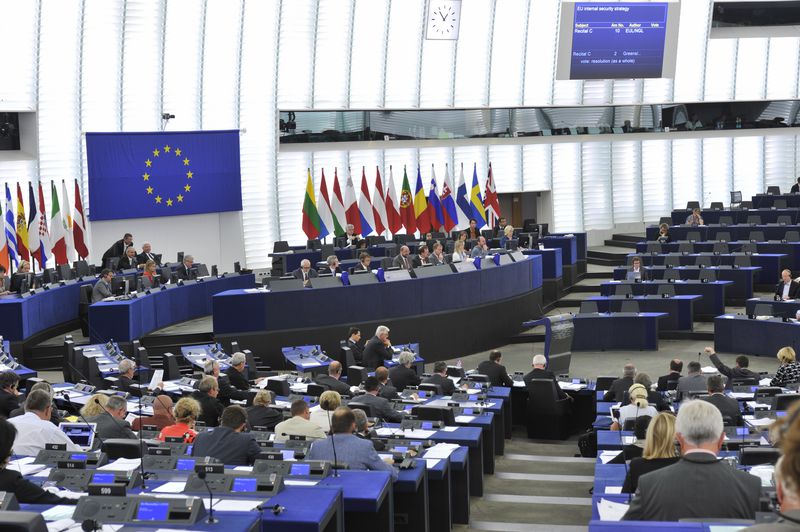 European Parliament levels up with the Council and even more, at least regarding the common European issues.
European Parliament levels up with the Council and even more, at least regarding the common European issues.
Probably, the obtaining of such unprecedented powers by the European Parliament is one of the reasons why the approval of the SSM on September 12th was unanimous by all political forces, which is a rare event. As rare is the debate on such an issue to be so brief, although there was a debate on the matter before the summer that led to the need of an agreement with ECB on transparency and accountability before the EP. Even the most eurosceptic political groups - the European Conservatives and Reformists, led by Martin Callanan, and Nigel Farage's Europe of Freedom and Democracy - supported the mechanism and welcomed its establishment. The only criticism was expressed by Jürgen Klute from the Confederal Group of the European United Left (Germany), who is a member of the EP economic committee. According to him, the way the mechanism is drawn it bears the risk of creating problems in the future because it does not include the banks outside the euro area.
If problems emerge outside the eurozone we will have to, again, resolve them mostly with money from the euro area countries, he warned and expressed fear that a chance is missed to establish a durable foundation that would stabilise the banking system in Europe. Another member of the economic committee, Sylvie Goulard (ALDE, France), also expressed reserves pointing out that providing the non-euro countries with rights to leave the mechanism any time when they do not like the recommendations is a reason for concern.
What comes next?
Although not everything is agreed, the mechanism will again pass through the EU finance ministers (Ecofin) for a final approval. Then comes the difficult (at this stage even more difficult) task on agreeing the single resolution mechanism for the banks (SRM) a proposal which the Commission presented in July. As euinside wrote, there are disagreements on it, with Germany expressing serious reserves pointing out that the European law does not allow for the establishment of a single resolution fund. Joerg Asmussen said, though, on Friday evening that Article 114 does provide sufficient grounds for the establishment of the fund. Moreover, he said, there is a complete agreement between the legal services 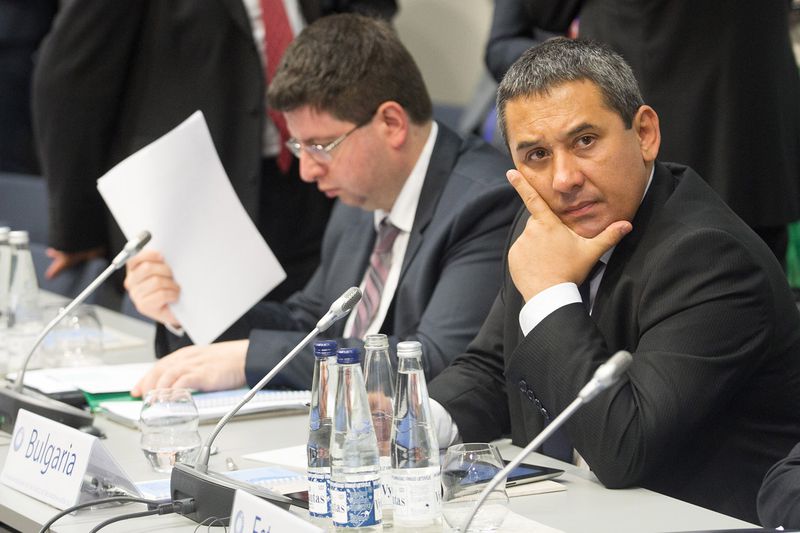 of the Council, Commission and ECB on the issue. The Presidency announced in the meantime that it will aim for achieving a general approach in November, when the finance ministers agreed to meet twice to discuss the second pillar of the banking union.
of the Council, Commission and ECB on the issue. The Presidency announced in the meantime that it will aim for achieving a general approach in November, when the finance ministers agreed to meet twice to discuss the second pillar of the banking union.
Depending on how does work go on the preparation of the ECB to take over its supervisory functions, the SSM will become operational probably in the autumn of 2014. And if there is agreement on the SRM, it will start functioning in 2015.
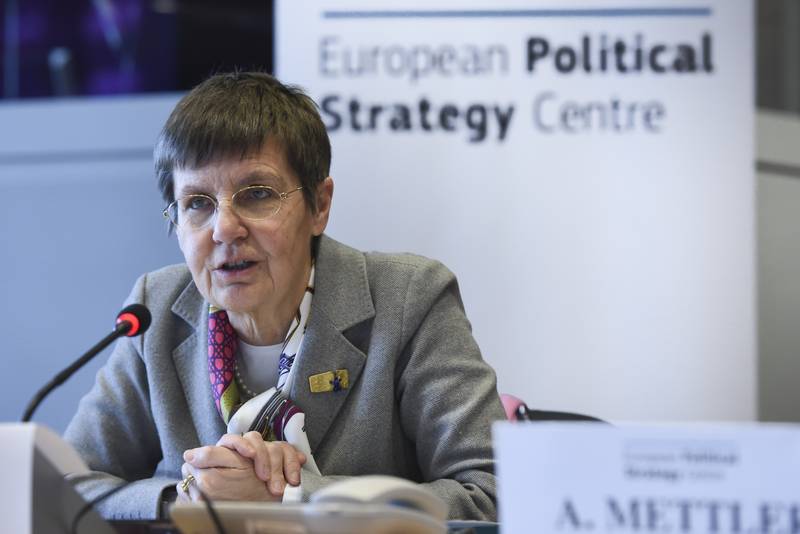 Elke Koenig | © European Commission
Elke Koenig | © European Commission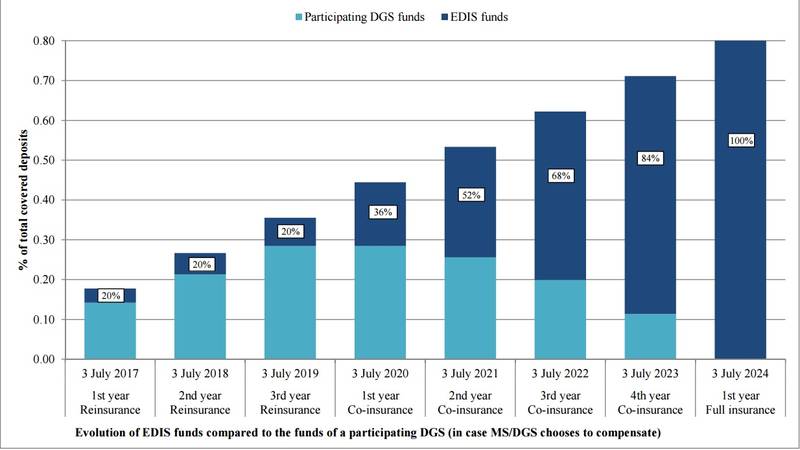 | © European Commission
| © European Commission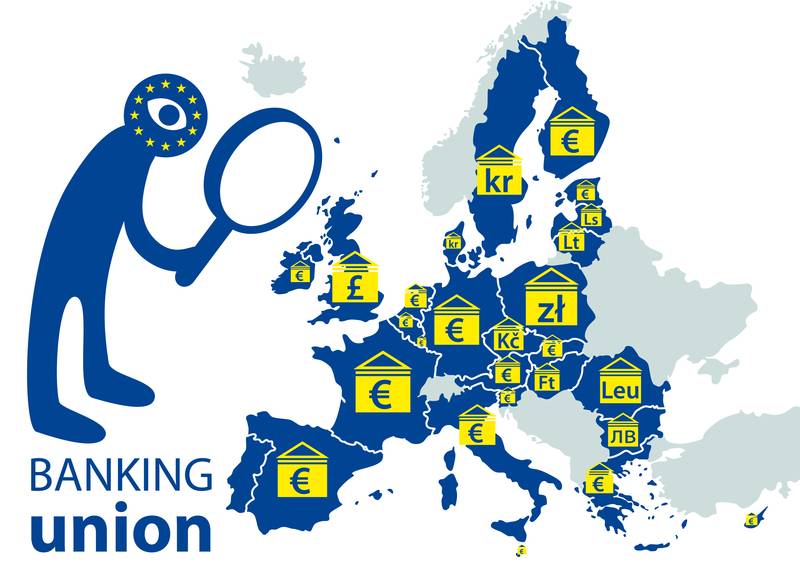 | © European Parliament
| © European Parliament